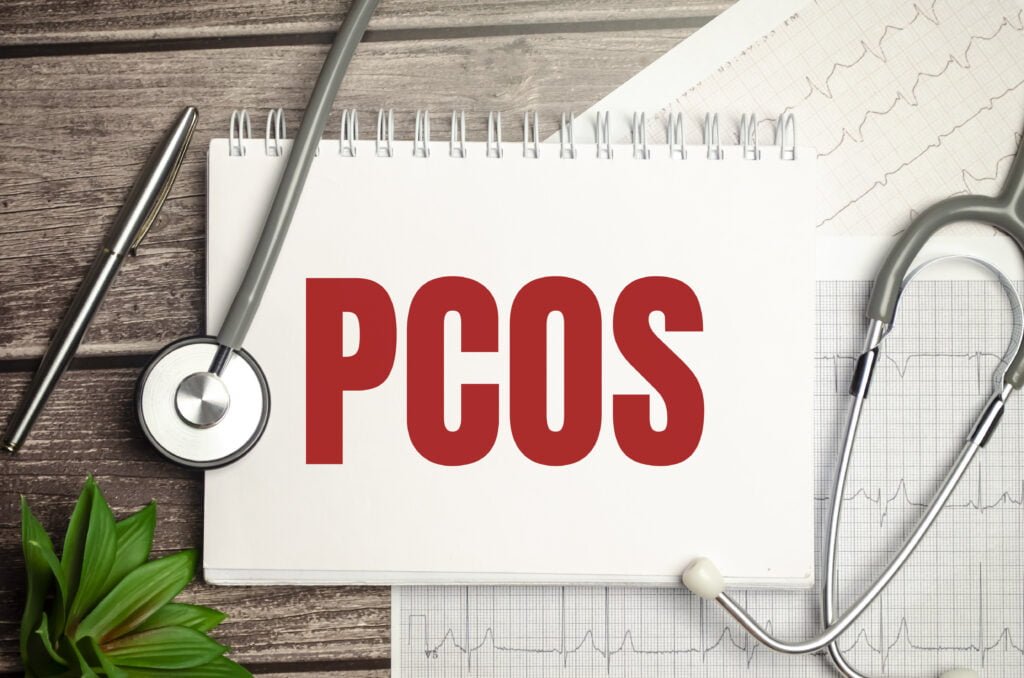
By Dr. Priya Shikha Modi, MBBS, MS, DNB (gynecology and obstetrics), FMAS (Fellowship in Minimal Access Surgery)
What is PCOS?
Polycystic ovary syndrome (PCOS) is a hormonal disorder that affects women of reproductive age. It is characterized by irregular or absent periods, excess androgen (male hormone) levels, and multiple cysts on the ovaries. PCOS can cause various symptoms, such as acne, hirsutism (excessive hair growth), weight gain, insulin resistance, and infertility.
What causes PCOS?
The exact cause of PCOS is unknown, but it is believed to involve a combination of genetic and environmental factors. Some of the possible factors are:
- Insulin resistance: Insulin is a hormone that helps the body use glucose (sugar) for energy. When the body becomes resistant to insulin, it produces more insulin to compensate. High insulin levels can stimulate the ovaries to produce more androgens, which can disrupt the menstrual cycle and ovulation.
- Inflammation: Chronic low-grade inflammation is associated with PCOS. Inflammation can trigger the production of androgens by the immune system and the ovaries, which can interfere with the normal functioning of the reproductive system.
- Genetics: PCOS tends to run in families, suggesting that there may be a genetic component to the condition. Several genes have been linked to PCOS, but none of them can explain the condition fully. It is likely that PCOS is influenced by multiple genes and their interactions with environmental factors.
How is PCOS diagnosed?
There is no single test to diagnose PCOS. Instead, the diagnosis is based on a combination of clinical signs, symptoms, and laboratory tests. The most widely used diagnostic criteria are the Rotterdam criteria, which require the presence of at least two of the following three features:
- Irregular or absent periods: This means having fewer than eight periods per year, or having cycles that are longer than 35 days or shorter than 21 days.
- Excess androgen levels: This can be detected by measuring the blood levels of androgens, such as testosterone, or by observing the physical signs of androgen excess, such as acne, hirsutism, or male-pattern baldness.
- Polycystic ovaries: This can be confirmed by an ultrasound scan of the ovaries, which shows multiple small cysts (fluid-filled sacs) on the surface of the ovaries. However, having polycystic ovaries alone does not necessarily mean that a woman has PCOS, as some women with normal hormone levels and regular periods may also have polycystic ovaries.
How can Dr. Priya Shikha Modi help?
Dr. Priya Shikha Modi is one of the most reputed and experienced gynecologists in the city, with a high success rate and a loyal clientele. One of the best gynecological laparoscopic surgeon in Noida. She completed her education at a top medical college (MBBS from Sarojini Naidu Medical College (SNMC), Agra, and her MS in Obstetrics and Gynecology from the University College of Medical Sciences (UCMS), New Delhi).
Dr. Priya Shikha Modi who specializes in the diagnosis and treatment of PCOS. She has over 9 years of experience in helping women with PCOS achieve their health and fertility goals. She offers a personalized and holistic approach to PCOS management, which includes:
- A thorough evaluation of the medical history, physical examination, and laboratory tests to confirm the diagnosis and rule out other conditions.
- A detailed discussion of the symptoms, concerns, and expectations of each woman, and the provision of accurate and evidence-based information about PCOS and its treatment options.
- A customized treatment plan that addresses the specific needs and preferences of each woman, and that incorporates lifestyle changes, medications, and surgery as appropriate.
- A close monitoring and follow-up of the treatment outcomes, and the adjustment of the treatment plan as needed.
- A compassionate and supportive care that respects the dignity, privacy, and autonomy of each woman, and that empowers her to take charge of her health and well-being.
If you are looking for a qualified and experienced doctor who can help you manage your PCOS symptoms and improve your fertility, contact Dr. Priya Shikha Modi today. You can book an appointment online at [Modilifeline.com] or call her office at [8368084827]. She will be happy to assist you and answer any questions you may have.
